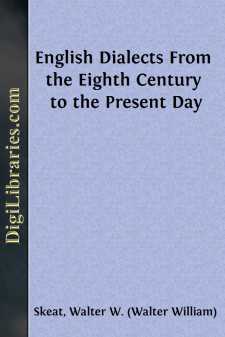Categories
- Antiques & Collectibles 13
- Architecture 36
- Art 48
- Bibles 22
- Biography & Autobiography 814
- Body, Mind & Spirit 145
- Business & Economics 28
- Children's Books 17
- Children's Fiction 14
- Computers 4
- Cooking 94
- Crafts & Hobbies 4
- Drama 346
- Education 56
- Family & Relationships 59
- Fiction 11833
- Foreign Language Study 3
- Games 19
- Gardening 17
- Health & Fitness 34
- History 1378
- House & Home 1
- Humor 147
- Juvenile Fiction 1873
- Juvenile Nonfiction 202
- Language Arts & Disciplines 89
- Law 16
- Literary Collections 686
- Literary Criticism 179
- Mathematics 13
- Medical 41
- Music 40
- Nature 179
- Non-Classifiable 1768
- Performing Arts 7
- Periodicals 1453
- Philosophy 66
- Photography 2
- Poetry 897
- Political Science 203
- Psychology 45
- Reference 154
- Religion 516
- Science 126
- Self-Help 85
- Social Science 82
- Sports & Recreation 34
- Study Aids 3
- Technology & Engineering 59
- Transportation 23
- Travel 463
- True Crime 29
Our website is made possible by displaying online advertisements to our visitors.
Please consider supporting us by disabling your ad blocker.
English Dialects From the Eighth Century to the Present Day
Categories:
Description:
Excerpt
CHAPTER I
DIALECTS AND THEIR VALUE
According to the New English Dictionary, the oldest sense, in English, of the word dialect was simply “a manner of speaking” or “phraseology,” in accordance with its derivation from the Greek dialectos, a discourse or way of speaking; from the verb dialegesthai, to discourse or converse.
The modern meaning is somewhat more precise. In relation to a language such as English, it is used in a special sense to signify “a local variety of speech differing from the standard or literary language.” When we talk of “speakers of dialect,” we imply that they employ a provincial method of speech to which the man who has been educated to use the language of books is unaccustomed. Such a man finds that the dialect-speaker frequently uses words or modes of expression which he does not understand or which are at any rate strange to him; and he is sure to notice that such words as seem to be familiar to him are, for the most part, strangely pronounced. Such differences are especially noticeable in the use of vowels and diphthongs, and in the mode of intonation.
The speaker of the “standard” language is frequently tempted to consider himself as the dialect-speaker’s superior, unless he has already acquired some elementary knowledge of the value of the science of language or has sufficient common sense to be desirous of learning to understand that which for the moment lies beyond him. I remember once hearing the remark made—“What is the good of dialects? Why not sweep them all away, and have done with them?” But the very form of the question betrays ignorance of the facts; for it is no more possible to do away with them than it is possible to suppress the waves of the sea. English, like every other literary language, has always had its dialects and will long continue to possess them in secluded districts, though they are at the present time losing much of that archaic character which gives them their chief value. The spread of education may profoundly modify them, but the spoken language of the people will ever continue to devise new variations and to initiate developments of its own. Even the “standard” language is continually losing old words and admitting new ones, as was noted long ago by Horace; and our so-called “standard” pronunciation is ever imperceptibly but surely changing, and never continues in one stay.
In the very valuable Lectures on the Science of Language by Professor F. Max Müller, the second Lecture, which deserves careful study, is chiefly occupied by some account of the processes which he names respectively “phonetic decay” and “dialectic regeneration”; processes to which all languages have always been and ever will be subject.
By “phonetic decay” is meant that insidious and gradual alteration in the sounds of spoken words which, though it cannot be prevented, at last so corrupts a word that it becomes almost or wholly unmeaning. Such a word as twenty does not suggest its origin....


